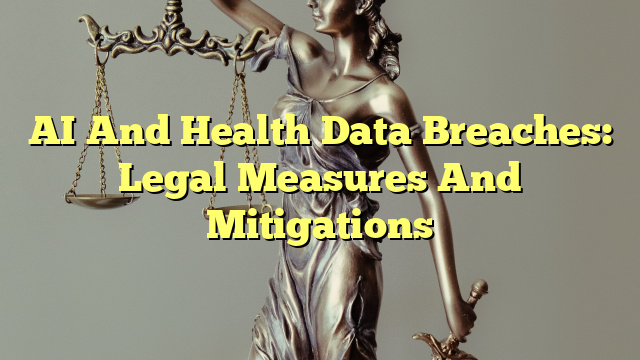Table of Contents
Introduction
AI technology has revolutionized the healthcare industry, allowing for more efficient diagnosis, treatment, and research. However, with the increased use of AI comes the risk of data breaches and privacy concerns. In this article, we will explore the legal measures and mitigations that can be implemented to address these risks.
How does AI prevent data breaches?
AI can play a crucial role in preventing data breaches by implementing advanced security measures. Machine learning algorithms can analyze patterns and detect anomalies in real-time, alerting healthcare providers to potential breaches. Additionally, AI can enhance access controls and encryption techniques, making it harder for unauthorized individuals to access sensitive health data.
How do you mitigate AI privacy risks?
Mitigating AI privacy risks requires a multi-faceted approach. Firstly, organizations must ensure that they have robust data protection policies in place, including strict access controls and encryption protocols. Secondly, AI systems should be designed with privacy in mind, incorporating privacy-enhancing technologies such as differential privacy and federated learning. Finally, regular audits and assessments should be conducted to identify and address any privacy vulnerabilities.
Legal issues surrounding AI
The use of AI in healthcare raises several legal issues, including data protection, liability, and accountability. Organizations must comply with relevant data protection laws, such as the General Data Protection Regulation (GDPR), and ensure that they have appropriate consent mechanisms in place. Additionally, the use of AI algorithms in decision-making processes may raise questions of liability and accountability, as it can be challenging to determine who is responsible for any adverse outcomes.
Legal and ethical boundaries of artificial intelligence
Defining the legal and ethical boundaries of artificial intelligence is a complex task. It requires a careful balance between promoting innovation and protecting individuals’ rights and interests. Legal frameworks should address issues such as algorithmic transparency, accountability, and fairness to ensure that AI is used responsibly and ethically. Additionally, ongoing dialogue and collaboration between policymakers, industry stakeholders, and ethicists are essential to establish comprehensive and effective regulations.
Conclusion
As AI continues to advance in the healthcare sector, it is crucial to address the legal and privacy concerns associated with its use. By implementing robust security measures, privacy-enhancing technologies, and comprehensive legal frameworks, organizations can mitigate the risks of data breaches and ensure that AI is used responsibly and ethically.

